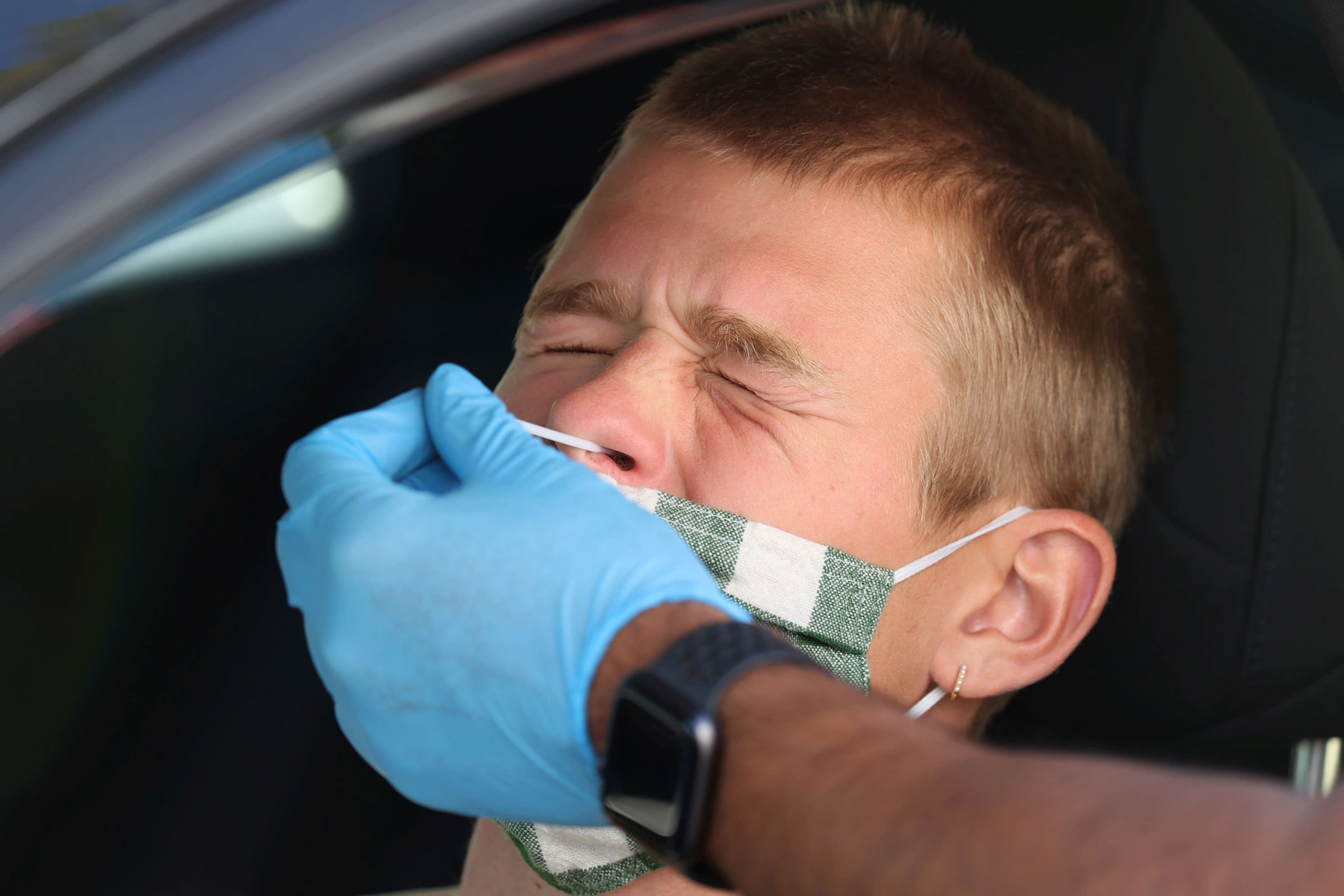Hugo Boserup (22) gets a PCR coronavirus test as the worldwide outbreak of coronavirus (COVID-19) continues in Malibu, California, December 2, 2020.
Lucy Nicholson | Reuters
LONDON – Most people who have had Covid-19 are protected from catching it for at least six months, but elderly patients are more prone to reinfection, according to peer-reviewed research published in The Lancet medical journal Wednesday night.
The first large-scale study on coronavirus re-infection rates was conducted in Denmark in 2020, with the findings confirming that only a small proportion of people (0.65%) underwent a positive PCR test twice. PCR tests are considered the gold standard and tell you if you currently have the virus.
Although previous infection gave those under 65 about 80% protection against re-infection, it only gave 47% protection to people 65 and older, indicating that they are more likely to catch Covid-19 again.
The authors of the study – which was conducted by researchers from the Staten Serum Institut and the University of Copenhagen in Denmark, and the European Center for Disease Prevention and Control in Sweden, and received no money – found no evidence that the protection against reinfection within a follow-up period of six months.
The Lancet noted that the findings of the researchers confirm strategies that prioritized the protection of the elderly during the pandemic, such as increased social distance and prioritization for vaccines, even for those recovering from Covid-19.
“The analysis also indicates that people who have had the virus still need to be vaccinated because natural protection – especially among the elderly – cannot be relied upon,” The Lancet said in a press release on Wednesday.
According to Johns Hopkins University, the coronavirus pandemic has so far caused more than 120 million infections and more than 2.6 million deaths.
Although there have been previous studies that suggested that immunity to Covid-19, after previous infection, may last at least six months, this latest research gives a better indication of the level of protection and how it differs between age groups.
Steen Ethelberg of the Statens Serum Institut in Denmark, commenting on the study, said the research supports previous findings around reinfection rates.
“Our study confirms what a number of others seem to suggest: reinfection with Covid-19 is rare in younger, healthy people, but the elderly are more likely to catch it again. As older people also experience more serious disease symptoms , and unfortunately dying, our findings show how important it is to implement policies to protect the elderly during the pandemic. ‘
The study was conducted by researchers who analyzed the data collected as part of the national coronavirus strategy for Denmark, which tested more than two-thirds of the population (69%, about 4 million people) in 2020.
Free, national PCR tests – open to everyone, regardless of symptoms – are one of the core pillars of Denmark’s strategy to control the spread of the virus.
Researchers are using this data, which spread the country’s first and second waves of infections last year, to estimate the protection against recurrent infection with the original Covid-19 strain. Ratios of positive and negative test results were calculated taking into account the differences in age, gender, and time since infection, and these were used to provide estimates of protection against reinfection, The Lancet noted.
Further studies required
It is important to emphasize that the authors note that the time frame of their study meant that it was not possible to estimate the protection against reinfection with new variants of the virus that emerged late last year. The variant discovered in the United Kingdom, for example, has since become a dominant strain in Europe because it is more transmissible.
Further studies are needed to determine how protection against recurrent infection can vary with different strains of the virus, the medical journal said.
